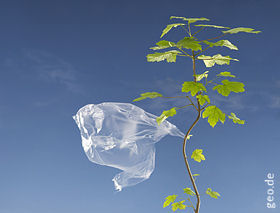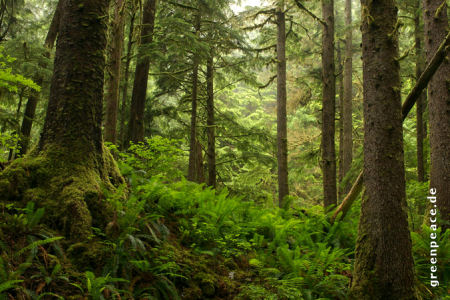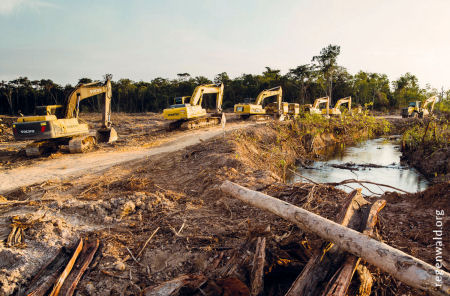Print Shop and Ecobalance
For many years, copyservices has been striving to minimize the burden of printing and copying for our environment. Especially in our business, this is a great task, particularly in view of the high paper consumption, while on the other side we are very aware of us sitting on larger adjusting screws than many a end consumer and that this includes some degree of responsibility.
17
Pallets (≙ 100.000 sheets) recycled paper
instead of fresh fibre paper consumed
9350
Kilograms of wood saved
3400
Kilograms of Carbon saved
284750
Litres of water saved
*
Paper
In the usual paper production, an indecently high resource requirement (one kilogram of pure wood for 100 sheets of fresh fibre paper plus energy for the transport half around the world and for processing ) is combined with the use of water contaminating chemicals. Nevertheless, our annual per capita consumption is 250 kilograms of paper, 40% of these are papers used for printing.
Comprehensive information on the topic is available at the Federal Environment Agency.
Further information can be found at
WWF 
or
Climate fact checks 
.
copyservices has always offered recycled paper, but in 2018 we decided to expand the range and focus our efforts on actively disposing of these recycled papers, which fortunately found much favour.
Recycled Paper (No extra charge!)
All self-service printers are stocked in the standard paper tray with pure white recycled paper of the premium class. This paper is made of 100% recovered paper and is certified
with the Blue Angel 
, which guarantees additional strict requirements for resource consumption and environmental impact during production.
On request, we also like to insert the unbleached equivalent, with Blue Angel as well, but almost without any chemicals (most harmful substances are needed for bleaching) and thus still more environmental friendly.
The premium fresh fibre paper Double A is located in magazine 2.
Note: Despite frequently heard contrary assertions, which are probably based on not particularly high-quality, non-certified recycled paper, good recycled paper certified with the Blue Angel is even with purchase per pallet still more expensive than any premium paper made of fresh fibre, we don't make a bundle with recycled paper as standard, but pay additional cost (willingly).
Fresh Fibre Paper
Also at the fresh fibre papers we try to keep the ecological footprint small, but this isn't too easy:
The 80g paper
Double A 
is at least
FSC-certified 
and receives its wood from field edge forestry, so it is not directly involved in the deforestation of rainforests. Furthermore, it works exclusively with eucalyptus wood, a wood that weighs more than twice as much per cubic metre as e.g. spruce and thus also more than doubles the paper yield rate.
End of the theoretical part. Of course, we cannot guarantee from afar that the wood really comes from field edge forestry and yet not from the huge eucalyptus plantations, which push back the rain forest. And eucalyptus simply does not grow in the Perlacher Forst (tiny little forest in Munich), so it has to be retrieved in raw or paper form from Indonesia.
The special papers of the
ColorCopy 
brand are FSC- and EU-Ecolabel-certified and carbon-neutral and therefore better than average after all. Unfortunately, there is nothing more to say. Coating can only be done by the application of binders and pigments, no manufacturer combines this with recycled paper and no certificate of sustainability can be obtained for this. But it's just beautiful.
Paper Quality and Printing Systems
The use of
exclusively high-quality papers is also important for the ecobalance of the devices used for printing, as it helps to avoid emissions and repairs.
Printers
When looking at the ecological footprint, printing systems are particularly important not only because of their raw materials, but also because of their emissions.
All storage and production printers used are
certified with the Blue Angel 
. Konica Minolta, as manufacturer and lessor of all used printing systems, is part of the
50 Climate Leaders 
and runs a
Clean Planet Program 
.
Despite all sustainability, we still do not attach any particular importance to outdated printing systems, so they are bought in new condition. But after all, at the end of their running time, they are returned to the manufacturer for further recycling. Of course, further resources are consumed for each new printer, but the printers then always have significantly better emission values also, so that, similar to the case with passenger cars, the question of the better ecobalance is not that easy to answer. But since we continue to place high demands on the quality of our prints, this precedes our direction.
Those Little Things
( Subtitle: Oh, yes, the toilet paper is recycled too. )
Green Electricity
All areas of business work with green electricity, the print shop Fraunhoferstraße is driven by green electricity from SWM.

Packaging
Packaging in Selling
We abolished t-shirt bags, often used to transport single copies, and replaced them with paper envelopes.
For volumes which exceed the envelope, we offer paper bags with high resistance to tearing instead of plastic bags and hope for reuse.
Orders of a larger scale are always packaged in second-hand cardboard boxes, so that our packaging volume of waste is practically non-existent.
Packaging in Purchasing
We attach importance to ensuring that our suppliers also minimize packaging waste or resort to alternative packaging options. And we also change suppliers if another one does it better.
Discounts for the Combination of High Print Volume, Nature Protection Purposes and Resource-efficiency
Organizations and associations with authentication of common public interest, which concentrate on environmental and nature protection print at copyservices at cost price. So you only pay what is incurred in our purchase as an exit, we behave really un-entrepreneurial and forego profit and pay.
Requirement for this is the printing on recycled paper and a high print volume.
More about this for those interested at the
business services.






 or
or 